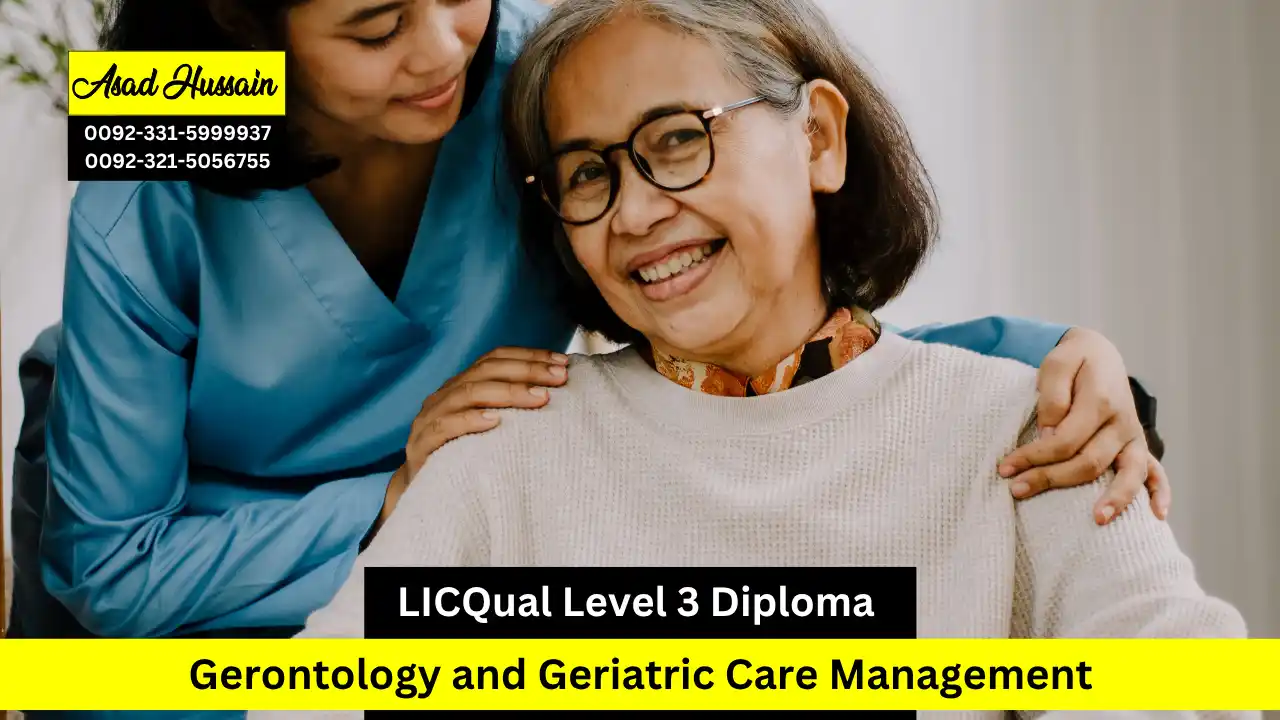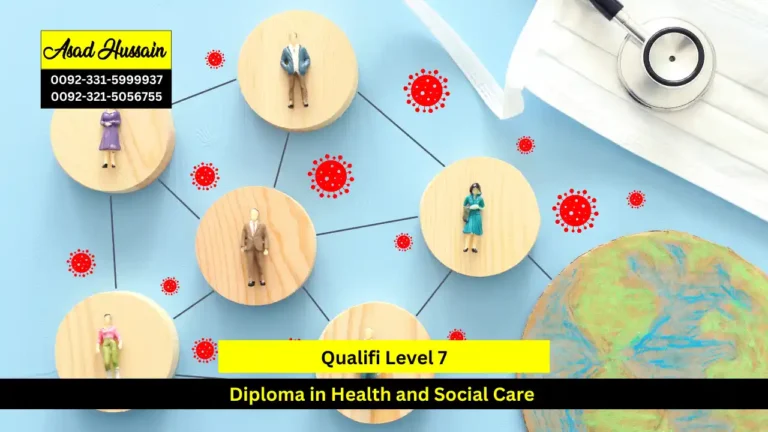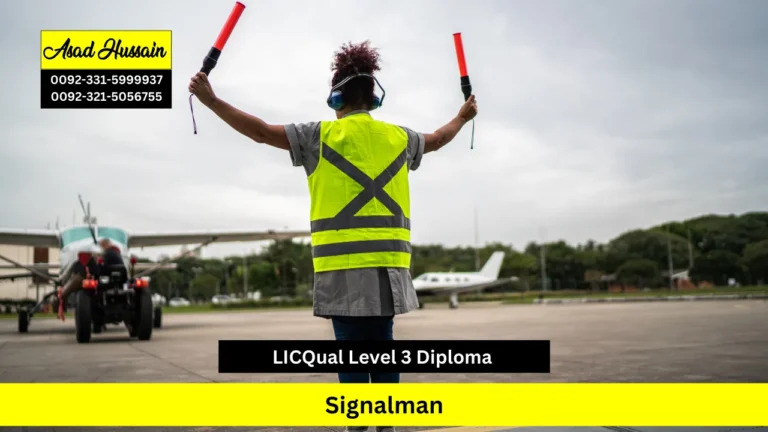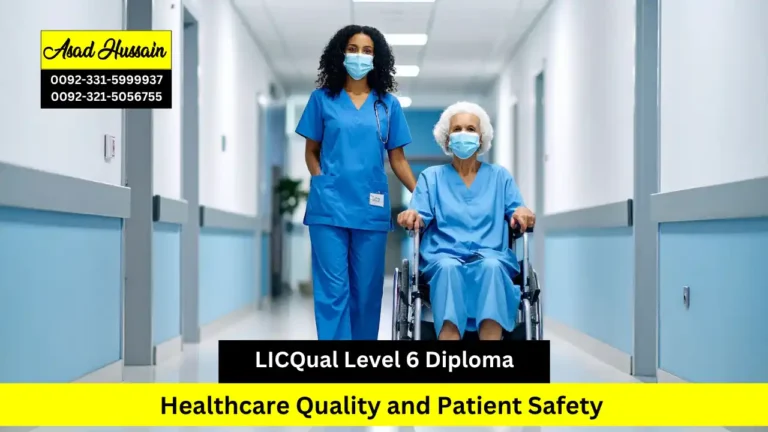The LICQual Level 3 Diploma in Gerontology and Geriatric Care Management is a specialized qualification designed to meet the growing demand for skilled professionals in elderly care and age-related healthcare management. With the global population of older adults increasing rapidly, there is a greater need for experts who can provide high-quality, person-centered care while addressing the complex physical, emotional, and social needs of aging individuals. This diploma ensures learners gain the knowledge and confidence to support elderly populations effectively in diverse healthcare and community settings.
LICQual Level 3 Diploma in Gerontology and Geriatric Care Management is to equip learners with a strong foundation in aging studies, geriatric care planning, and healthcare management strategies. Learners will explore essential areas such as dementia care, chronic disease management, long-term care planning, and ethical considerations in elderly care. By mastering these areas, participants will be well-prepared to manage healthcare delivery for older adults with professionalism, empathy, and efficiency.
Through this program, learners will develop vital skills in geriatric assessment, patient advocacy, healthcare policy, and family support strategies. The course also emphasizes effective communication, leadership in care environments, and the ability to design care frameworks that improve the quality of life for older adults.
Graduates of the LICQual Level 3 Diploma in Gerontology and Geriatric Care Management will be able to pursue rewarding roles in nursing homes, community health organizations, hospitals, and social care facilities. This qualification also provides a progression pathway to advanced studies in healthcare management, nursing, or social work, making it a valuable credential for those dedicated to improving elderly care standards.
Program Highlights
Mandatory Units
- Principles of Gerontology and the Ageing Process
- Geriatric Health Conditions and Care Practices
- Ethical, Legal, and Cultural Issues in Elderly Care
- Care Planning and Person-Centred Approaches in Geriatric Management
- Leadership and Professional Practice in Geriatric Care Management
- Community Resources, Family Engagement, and Support Systems in Elderly Care
The LICQual Level 3 Diploma in Gerontology and Geriatric Care Management is designed for individuals aspiring to build expertise in elderly care, aging studies, and geriatric healthcare management, while developing skills in patient advocacy, leadership, and organizational efficiency. To ensure learners are well-prepared for the academic and professional requirements of this qualification, specific entry requirements are established to maintain the quality and integrity of the program.
Age Requirements:
- Applicants must be at least 18 years old at the time of enrolment.
- Candidates under 18 may be considered only with written parental or guardian consent and evidence of maturity and readiness for higher-level study.
Educational Requirements:
- A minimum of a high school diploma (or equivalent) is required.
- Previous study in healthcare, social care, nursing, psychology, or related fields is advantageous but not mandatory.
Professional Experience:
- While not compulsory, 1–2 years of experience in healthcare, elderly care, nursing homes, or social services is preferred.
- Practical exposure to geriatric care, long-term care planning, or patient support roles provides learners with a stronger foundation for the program.
English Language Proficiency:
- Strong English reading, writing, and communication skills are essential for successfully completing this diploma.
- International applicants must provide proof of English proficiency through recognized assessments such as IELTS (minimum score of 5.5) or an equivalent qualification.
Learners who meet these entry requirements will be well-prepared to excel in the LICQual Level 3 Diploma in Gerontology and Geriatric Care Management, gaining essential knowledge and skills to deliver high-quality elderly care, design care frameworks, and manage age-related healthcare challenges. This qualification also serves as a progression pathway to advanced studies, such as the LICQual Level 4 Diploma in Healthcare Management, enabling learners to strengthen their professional development and recognition in the global healthcare and social care sector.r.
The LICQual Level 3 Diploma in Gerontology and Geriatric Care Management equips learners with essential knowledge, practical skills, and professional competencies required to manage and support the needs of aging populations effectively. With global life expectancy increasing and elderly populations expanding, the demand for skilled professionals in geriatric care is higher than ever. This diploma ensures learners develop the expertise to enhance the quality of life for older adults, manage long-term care systems, and strengthen healthcare delivery for aging communities. Upon completing this qualification, learners will demonstrate strong capabilities in elder care planning, patient advocacy, healthcare coordination, and ethical decision-making to ensure dignity and well-being in later life.
Fundamentals of Gerontology and Aging Studies:
- Understand the key principles, scope, and importance of gerontology in healthcare and social care systems.
- Explore the biological, psychological, and social dimensions of aging and their implications for elderly care.
- Examine global demographic trends, aging patterns, and their impact on healthcare policies and services.
- Identify common age-related conditions, chronic illnesses, and their influence on patient care needs.
- Develop the ability to design structured approaches for supporting older adults in diverse care settings.
Geriatric Care Management and Patient-Centered Practices:
- Learn techniques for creating individualized care plans that address medical, emotional, and social needs.
- Understand the importance of patient dignity, autonomy, and ethical considerations in elderly care.
- Analyze different models of long-term care, including nursing homes, assisted living, and community care.
- Assess strategies for improving the quality of life and independence of elderly individuals.
- Develop frameworks to coordinate multidisciplinary teams for effective geriatric care delivery.
Health Assessment, Risk Management, and Quality of Care:
- Gain in-depth knowledge of assessing elderly patients’ physical, cognitive, and emotional health.
- Apply risk assessment techniques to manage falls, medication safety, and chronic disease complications.
- Monitor care processes against healthcare standards, patient safety guidelines, and best practices.
- Evaluate the impact of healthcare decisions on elderly patient outcomes and family satisfaction.
- Implement quality assurance measures and continuous improvement strategies in geriatric services.
Policy, Ethics, and Social Responsibility in Elderly Care:
- Examine how healthcare policies, social welfare frameworks, and ethical principles shape geriatric care.
- Understand regulatory compliance and accountability requirements in elderly care management.
- Develop strategies for engaging stakeholders, including families, caregivers, communities, and regulators.
- Assess how care management aligns with organizational objectives and ethical responsibilities.
- Promote respect, transparency, and cultural sensitivity in elderly care practices.
Communication, Leadership, and Caregiver Coordination:
- Learn effective communication techniques for engaging elderly patients and their families.
- Apply leadership strategies to guide healthcare teams in geriatric and long-term care environments.
- Develop frameworks for coordinating caregivers, nurses, and social workers for seamless patient support.
- Strengthen empathy, problem-solving, and conflict resolution skills in elderly care contexts.
- Cultivate resilience, adaptability, and compassion as key professional traits in gerontology.
Elderly Care Innovation, Recovery, and Professional Development:
- Learn structured methods for designing innovative healthcare and social care services for older adults.
- Develop recovery and rehabilitation plans to support aging patients after illness or hospitalization.
- Apply monitoring, evaluation, and reporting techniques to measure elderly care effectiveness.
- Strengthen professional competence in managing geriatric services across diverse healthcare settings.
- Prepare for career progression and advanced qualifications in gerontology, healthcare management, and elder care leadership.
Upon completion of the LICQual Level 3 Diploma in Gerontology and Geriatric Care Management, learners will be fully equipped with practical expertise, critical understanding, and professional skills to design and deliver high-quality elderly care services. Graduates will be prepared to contribute to healthier aging populations, improve patient outcomes in geriatric settings, and pursue advanced studies or leadership roles in healthcare management, elder care policy, and long-term care systems.
The LICQual Level 3 Diploma in Gerontology and Geriatric Care Management is a globally recognized qualification designed for individuals who want to play a vital role in supporting and managing the needs of aging populations. With life expectancy increasing and healthcare systems facing rising demands from elderly patients, there is a critical need for professionals skilled in geriatric care planning, patient advocacy, and elder care management. This diploma equips learners with the ability to assess the challenges of aging, design effective care frameworks, coordinate healthcare services, and implement strategies that enhance the dignity and well-being of older adults. It also emphasizes key areas such as ethical practice, family engagement, leadership, and quality assurance in geriatric services. By completing this qualification, learners will be prepared to manage elderly care with confidence, compassion, and professionalism, ensuring improved outcomes and sustainable care delivery.
Geriatric Care Managers and Coordinators
- Professionals directly responsible for planning, preparing, and managing elderly care services in healthcare or community settings.
- Individuals aiming to build expertise in patient-centered care, elder care frameworks, and long-term healthcare planning.
- Learners who want to master effective decision-making and execution of care strategies for elderly populations.
- Those seeking to enhance skills in coordinating multi-disciplinary teams across nursing homes, hospitals, and community services.
- Professionals determined to design and implement sustainable geriatric care models that improve quality of life.
- Coordinators looking to develop advanced monitoring and evaluation methods for elderly care services.
- Individuals aspiring to align geriatric care strategies with global best practices and ethical standards.
- Learners committed to ensuring patient dignity, safety, and continuity of care for elderly individuals.
Healthcare Practitioners and Administrators
- Doctors, nurses, caregivers, and allied health professionals seeking to expand their expertise in elderly care management.
- Hospital and nursing home administrators looking to integrate gerontology practices into healthcare delivery.
- Practitioners aiming to adopt evidence-based approaches to improve elderly patient outcomes.
- Healthcare staff who want to develop skills in managing chronic conditions, palliative care, and rehabilitation.
- Professionals seeking to strengthen their knowledge of dementia care, fall prevention, and patient advocacy.
- Individuals committed to improving operational efficiency and safety protocols in geriatric healthcare.
- Administrators who want to enhance coordination between clinical staff, caregivers, and families.
- Learners focused on applying effective leadership strategies in both acute and long-term elderly care settings.
Supervisors and Team Leaders
- Leaders overseeing healthcare teams, nursing units, or social care programs who want to develop strong geriatric care leadership abilities.
- Supervisors aiming to improve communication and decision-making when managing elderly patients and care staff.
- Team leaders responsible for ensuring collaboration and efficiency in long-term elderly care services.
- Professionals interested in coordinating cross-functional teams to manage comprehensive care plans for seniors.
- Leaders who want to gain skills in conflict resolution and family engagement during challenging care scenarios.
- Supervisors determined to strengthen their ability to oversee rehabilitation and recovery programs.
- Individuals seeking to develop resilience-focused leadership qualities to support long-term organizational success.
- Professionals aiming to establish a culture of empathy, respect, and preparedness within their geriatric care teams.
Elderly Care Planners and Safety Officers
- Professionals tasked with designing long-term care plans and policies for aging populations.
- Safety officers responsible for implementing compliance and healthcare standards in elderly care facilities.
- Individuals aiming to enhance their knowledge of policy, governance, and ethical considerations in geriatric care.
- Planners seeking to build effective frameworks for chronic disease management, palliative care, or rehabilitation.
- Learners focused on assessing elderly care needs and creating proactive strategies for improved quality of life.
- Professionals who want to ensure healthcare facilities remain safe, accessible, and responsive to aging populations.
- Individuals committed to building strong communication frameworks between patients, families, and healthcare providers.
- Safety officers aspiring to align elderly care services with international standards and best practices.
Career-Focused Learners
- Individuals aspiring to progress into specialized roles in gerontology, elderly care management, or social care leadership.
- Learners seeking qualifications that open pathways to advanced studies in healthcare leadership or elder care planning.
- Career-driven individuals motivated to contribute to the well-being and dignity of global aging populations.
- Professionals looking to strengthen their credibility and recognition in healthcare and geriatric care leadership.
- Learners committed to developing strong analytical, caregiving, and decision-making skills for elderly care management.
- Individuals wishing to gain practical expertise to handle complex and sensitive challenges in geriatric services.
- Career-focused professionals seeking to enhance employability in healthcare, social care, or humanitarian sectors.
- Learners determined to take on leadership roles in building safer, more compassionate, and resilient elderly care systems.
This diploma is the ideal choice for learners who are passionate about achieving professional excellence in gerontology and geriatric care management. It provides in-depth knowledge, critical skills, and advanced leadership competencies to effectively plan, deliver, and monitor elderly care services in diverse healthcare settings. Graduates will be well-prepared to make meaningful contributions to patient dignity, healthcare quality, and organizational resilience, while pursuing rewarding careers in elder care leadership, healthcare policy, and gerontology research.preparedness, and disaster management.







